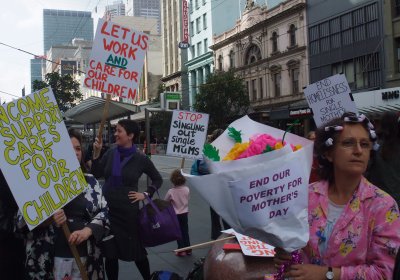836
The number of cars using Brisbane’s first road tunnel, which opened on March 18, has remained far below the target projected by the Brisbane City Council. After an initial toll-free period, when 65,000 vehicles used the tunnel daily, the usage plunged to a daily average of only 21,178 vehicles after a discounted toll was introduced. The drop in patronage has forced the tunnel operators, River City Motorways, to extend the discounted toll period by another seven weeks in an attempt to boost vehicle numbers.
Tens of thousands of people joined counter-protests against far-right marches across Germany on May 1. Sozialistische Alternative website said in Berlin, 15,000 people blockaded the Prenzlauer Berg district, restricting a march by 400 neo-Nazis to just 350 metres of their intended six-kilometre march route.
The tensions between staff and management in The Wilderness Society (TWS) have been building for years. Beginning as a small activist organisation that battled to save the Franklin Dam and won, it has evolved into a large, professional organisation with 45,000 financial members, campaign centres in most capital cities, and 150 paid staff.
- Previous page
- Page 4
- Next page




